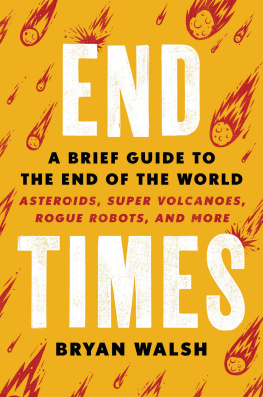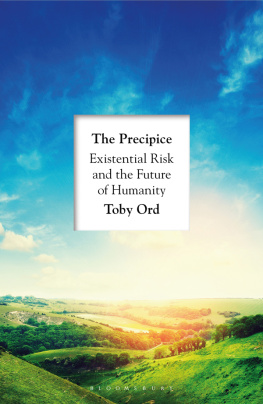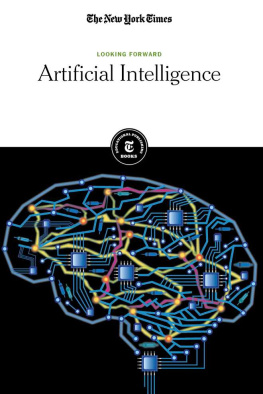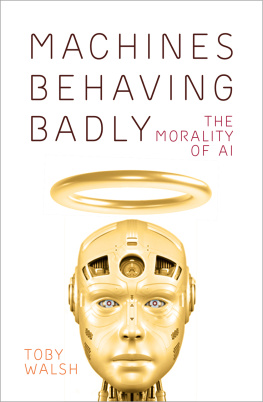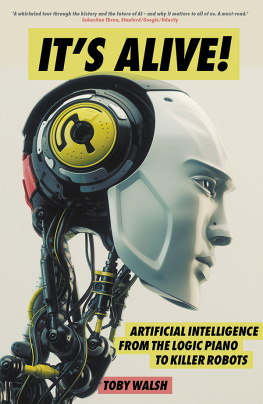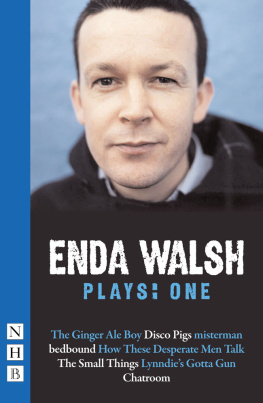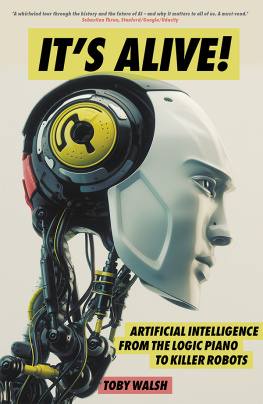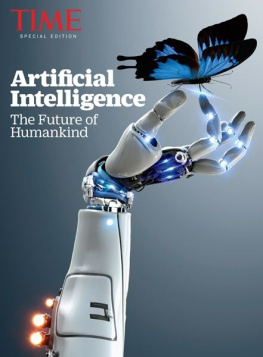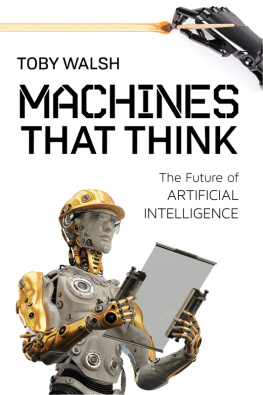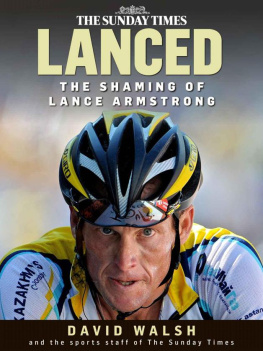Copyright 2019 by Bryan Walsh
Cover design and illustration by Jim Tierney
Cover copyright 2019 by Hachette Book Group, Inc.
Hachette Book Group supports the right to free expression and the value of copyright. The purpose of copyright is to encourage writers and artists to produce the creative works that enrich our culture.
The scanning, uploading, and distribution of this book without permission is a theft of the authors intellectual property. If you would like permission to use material from the book (other than for review purposes), please contact permissions@hbgusa.com. Thank you for your support of the authors rights.
Hachette Books
Hachette Book Group
1290 Avenue of the Americas
New York, NY 10104
hachettebookgroup.com
twitter.com/hachettebooks
First Edition: June 2019
Hachette Books is a division of Hachette Book Group, Inc.
The Hachette Books name and logo are trademarks of Hachette Book Group, Inc.
The publisher is not responsible for websites (or their content) that are not owned by the publisher.
The Hachette Speakers Bureau provides a wide range of authors for speaking events. To find out more, go to www.hachettespeakersbureau.com or call (866) 376-6591.
Print book interior design by Timothy Shaner, NightandDayDesign.biz
Library of Congress Cataloging-in-Publication Data has been applied for.
ISBNs: 978-0-316-44961-8 (hardcover), 978-0-316-44960-1 (ebook)
E3-20190709-JV-NF-ORI
CONTENTS
To Siobhan and to Ronan
Explore book giveaways, sneak peeks, deals, and more.
Tap here to learn more.
Of the four billion life forms which have existed on this planet, three billion, nine hundred and sixty million are now extinct. We dont know why. Some by wanton extinction, some through natural catastrophe, some destroyed by meteorites and asteroids. In the light of these mass extinctions it really does seem unreasonable to suppose that Homo sapiens should be exempt. Our species will have been one of the shortest-lived of all, a mere blink, you may say, in the eye of time.
P. D. J AMES , T HE C HILDREN OF M EN
T he average human can expect to live more than 2 billion seconds, but there are only a few moments when everything can change at once. It might be the second after you receive the worst news of your life, or the moment when the person you had always waited for says yes. For me that moment is captured in a photograph. Im in the hospital room on the day my son is born, standing to the left of my wife, Siobhan. A smile is surfacing through the fatigue bunched around my eyes. My father is standing on the right, beside my mother, as she looks into the lens with an expression of pure joy. She is holding our first child. His name is Ronan. Hes just a few hours old, his fine, thin skull dusted with reddish-blond hair, his fingers curled tightly in fists, his eyes shut against the light. Ronan is here, one of the newest inhabitants on planet Earth, and for us nothing will be the same again.
What I see when I look at that photograph today is the future coming into being. My father, who loomed throughout my childhood, is not just my father any longer, but a grandfather. My mother, the first person I remember being conscious of, is not just my mother any longer, but a grandmother. And I, a son for thirty-nine years, am no longer just a son, but a father, as my wife is now a mother. Were part of a chain that turns toward the future, one human link at a time. And those links are as fragile as a newborn baby.
Until that moment Id never really thought about the future, which is ironic, because for a decade and a half as a professional journalist the future was my subject. The first years were spent as a foreign correspondent for Time magazine in East Asia, where I witnessed the greatest victory over poverty the world has ever experienced, an economic and political earthquake that will reverberate for decades. I reported from ground zero on SARS, the first emerging global disease of the twenty-first century, a virus that came out of nowhere and exposed just how vulnerable our interconnected world was to the peril of sickness. I worked for a year in Japan as Time s Tokyo bureau chief, reporting from a country that lives on the very edge of the future.
After six years in Asia I moved to Time s headquarters in New York to cover climate change, a force that will do more than any other to reset the boundaries of our future. I attended historic conferences like the 2009 United Nations climate change summit in Copenhagen, and ventured to the vanishing ice sheets of the Arctic. I trekked to the dwindling rain forests of South America and the drought-stricken mountains of northern India. Everywhere I went, I witnessed the diminishing of humanitys future, melting away like the glaciers I once watched calving off Greenland.
When people found out that I covered climate changeand if they believed that climate change was realthey would usually ask me if I found the beat depressing. Werent we all doomed? Id tell them something about how climate change was vitally important because it represented the intersection of business and politics and science, all while allowing me to earn plenty of exotic stamps in my passport. Which was true enough. Climate change was important, and I did feel lucky to cover it. I could read the studies, and I could write articlesso many articleswarning that our species was headed for doom if we didnt make radical changes in the way we lived. But I never really felt it. I didnt feel the futureits weight, its uncertainty, its importance, and, like my newborn son, its fragility.
But I would.
In a 2012 poll by Reuters covering more than twenty countries, 15 percent of respondents predicted that the world would end in their lifetimes. Meanwhile, the tone of the news in the era of President Donald Trump has become nothing short of apocalyptic on both sides of the political divide. And when were not reading about the real-life end of the world, were watching a fictionalized version: The Walking Dead , The Hunger Games , Avengers: Endgame and half the new shows on Netflix. The bloodier and more dystopic, it seems, the more we love itas long as were watching, and not participating. If we fear the end times, part of us seems to crave themand perhaps believes we deserve them.
Whats ironic is that this existential panic unfolds against the backdrop of a world thatfor most of humanityis better than it has ever been. In 2018, for the first time in history, more than half of the worlds population qualified as middle class or rich. I doubt it.
If we dont appreciate the present, its in part because we dont fully understand the pasteven as we make the mistake of assuming the future will be like the present. Psychologists have a name for this trait: the availability heuristic , the human tendency to be overly influenced by what feels most visible and salient in our experience. The availability heuristic can cause us to overreact, as when we hear about reports of a suicide bombing and become fixated on the danger from terrorists, ignoring the longer-term data that shows such incidents are on the decline.yet for years, that is exactly what has been happening almost daily. The myopia of the availability heuristic leaves us fixated on everything that seems to be going wrong today, and blind to how far weve come.

